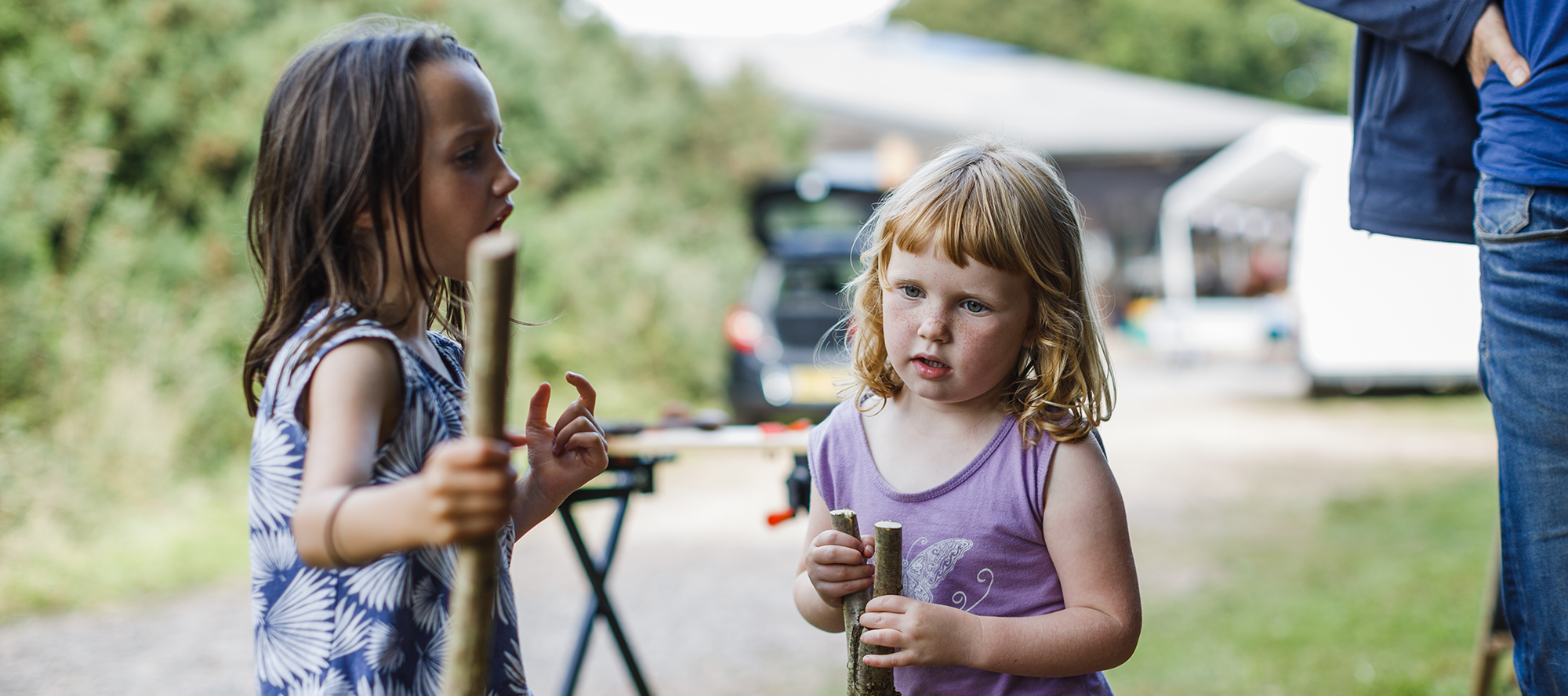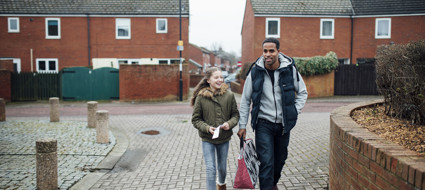Analysis of the population of looked-after children and young people in England, Dan Allen and Mairtain Moloney-Neachtain estimated that Gypsy and Traveller children were three times more likely to be taken into care than children from the wider population.
As every year the number of Gypsy, Roma, and Traveller children placed in care rises, it is becoming increasingly important to examine how professionals within Children’s Services engage with these communities and how this interaction can affect the support offered to children and their families.
There are a number of different groups that fall under the title of Gypsies and Travellers in the United Kingdom. For the purposes of this article, I will focus on Romany Gypsies and Irish Travellers who are defined as ethnic minority groups and protected from discrimination under the Equality Act 2010.
In line with Public Sector Equality Duty 2011, public sector officials are required not only to refrain from discrimination against Romany Gypsies and Irish Travellers but to advance equality and good relations in their day-to-day actions. This ties in with guidance outlined in the Human Rights Act 1998, Equalities Act 2010, and Children’s Act 1989 which requires that every child in care is looked after in a way that ‘respects, recognises, supports and celebrates their identity’. However, due to a limited understanding of Gypsy and Traveller culture and traditions, the unique needs of Gypsy and Traveller children within Children’s Services are often overlooked or misunderstood.
An improved understanding and awareness of these communities’ cultures and traditions within professional circles are necessary to ensure that children at risk of harm are identified correctly and that the support provided to families is appropriate and has the best chance of achieving its aim.
As most people will know, an important aspect of Gypsy and Traveller culture is nomadism. For many people in these communities, traveling is a source of wellbeing, income and meaning. In order to pursue a livelihood and to maintain social connections, Gypsy and Traveller families regularly cross the borders between local authorities. However, when allocating the responsibility for vulnerable children to local authorities, policymakers unintentionally neglected to consider the nomadic habits of Gypsies and Irish Travellers in their care planning rationale. The regionalised approach to Children’s Services can make it difficult for Gypsies and Travellers to engage with the agencies that are responsible for ensuring the safety and wellbeing of their children. This necessitates that engagement with Gypsy and Traveller families cannot be ‘business as usual’ but may require extra thought and consideration to ensure the safety and wellbeing of ‘at risk’ children.
Whilst every local authority has the duty to ‘safeguard and promote the welfare of children in their area who are in need’, there is no elaboration in the Children Act 1989 outlining a process to be followed for children who regularly move between local authority boundaries. Cemlyn found that in such a legislative gap, two conflicting risks can occur. Either, the over-involvement of professionals, who too speedily take action whilst children are in their area of care, or ignorance of Gypsy and Traveller issues leading to the needs of children being left unmet. Although it is important that changes to policy must be made, there are a number of practical steps which professionals working with Gypsies and Travellers in Children’s Services can take to help to improve practice with Gypsy and Traveller families:
-
Learn more about Gypsy and Traveller culture – By taking the time to learn the facts about Gypsy and Traveller culture and traditions, you will improve your communication with Gypsy and Traveller families and learn to provide culturally pertinent support.
-
Engage in cross-boundary collaborations – It is crucial for the wellbeing and safety of Gypsy and Traveller children that authorities and agencies involved in delivering care or support to ‘at risk’ children begin to work more collaboratively across geographical boundaries. This means taking the initiative to communicate with Children’s Services colleagues in other areas of the country and working together to support the needs of vulnerable children.
-
Ensure culturally appropriate care for Gypsy and Traveller children – There is currently an absence of care placements that recognise and support the distinct cultural identity and needs of Gypsy and Traveller children. A shortage of Gypsy and Traveller foster carers means that children from these communities are often placed with people who may have little or no understanding of the child’s background or culture. This can have major implications on the child’s development and sense of cultural identity.
-
Engage with other aspects of social services – A growing base of anecdotal evidence gathered through casework at Friends, Families and Travellers suggests that parents experiencing domestic violence in Gypsy and Traveller communities may be hesitant to come forward because of fear of Children’s Services involvement and that they will be separated from their children. If you receive a referral from homelessness teams regarding housing provision for the children of families fleeing from domestic violence, try to take steps to ensure parents and children are placed together, which both benefits the wellbeing of the children involved and also ensures that the adult victim of domestic violence does not doubly suffer.
-
Consider the history of social services engagement with Gypsy and Traveller families – Some members of the Gypsy and Traveller communities are suspicious of social workers and fear that professionals will take their children away from them. Consider asking the client if they would like to have an advocate from a local Gypsy and Traveller group or a trusted friend to join them in meetings and to offer additional support. In practice, the fear and suspicion some members of the Gypsy and Traveller communities have towards Children’s Services can only be counteracted by building trusting and understanding relationships.
With the number of Gypsy, Roma and Traveller children in care rising, it is essential to address the over-representation of these children in the care system. This may not be something that can be achieved overnight, so for professionals working with children and young people, it is crucial that we deliver appropriate care and support that respects Gypsy and Traveller culture, in order to support their wellbeing and quality of life.
Related resources
If you know of a Gypsy or Traveller family experiencing social work involvement and who would like support or advice, visit the TRAIN website.
References
Allen D and Moloney-Neachtain M (2015) ‘Supporting Gypsies, Roma and Travellers understand social work involvement’. The Travellers’ Times. 21 December 2015. Available online: http://travellerstimes.org.uk/Blogs--Features/Supporting-GRT-understand-social-work-involvement.aspx
Zayed Y and Harker R (2015) ‘Children in Care in England: Statistics’. Briefing Paper Number 04470. 5 October 2015. House of Commons Library.
Citizens Advice Bureau (2016) ‘Gypsies and Travellers - race discrimination’. Last accessed: 29 August 2016. Available online: https://www.citizensadvice.org.uk/law-and-courts/discrimination/protected-characteristics/gypsies-and-travellers-race-discrimination/
Equality and Human Rights Commission (2017) ‘Public Sector Equality Duty’. Last accessed: 11 May 2017. Available online: https://www.equalityhumanrights.com/en/advice-and-guidance/public-sector-equality-duty
HM Government (2011) The Children Act 1989 Guidance and Regulations. Volume 4: Fostering Services. Department for Education. Available online: https://www.gov.uk/government/uploads/system/uploads/attachment_data/file/274220/Children_Act_1989_fostering_services.pdf
Children Act (1989) ‘Provision of services for children and their families’. Children Act (1989). c. 41 Part III Section 17.
Cemlyn S (2013) Research re social work with Gypsies and Travellers 1983-2012. University of Bristol School for Policy Studies. Last accessed 11 May 2017. Available online: http://www.dmu.ac.uk/documents/business-and-law-documents/research/cchr/sarahcemlynpresentationmarch2013.pdf
Allen D, (Date unknown) Social Work with Gypsies and Travellers. Edge Hill University. Last accessed: 11 May 2017. Available online: http://www.dmu.ac.uk/documents/business-and-law-documents/research/cchr/danallenpresentationpot.pdf




